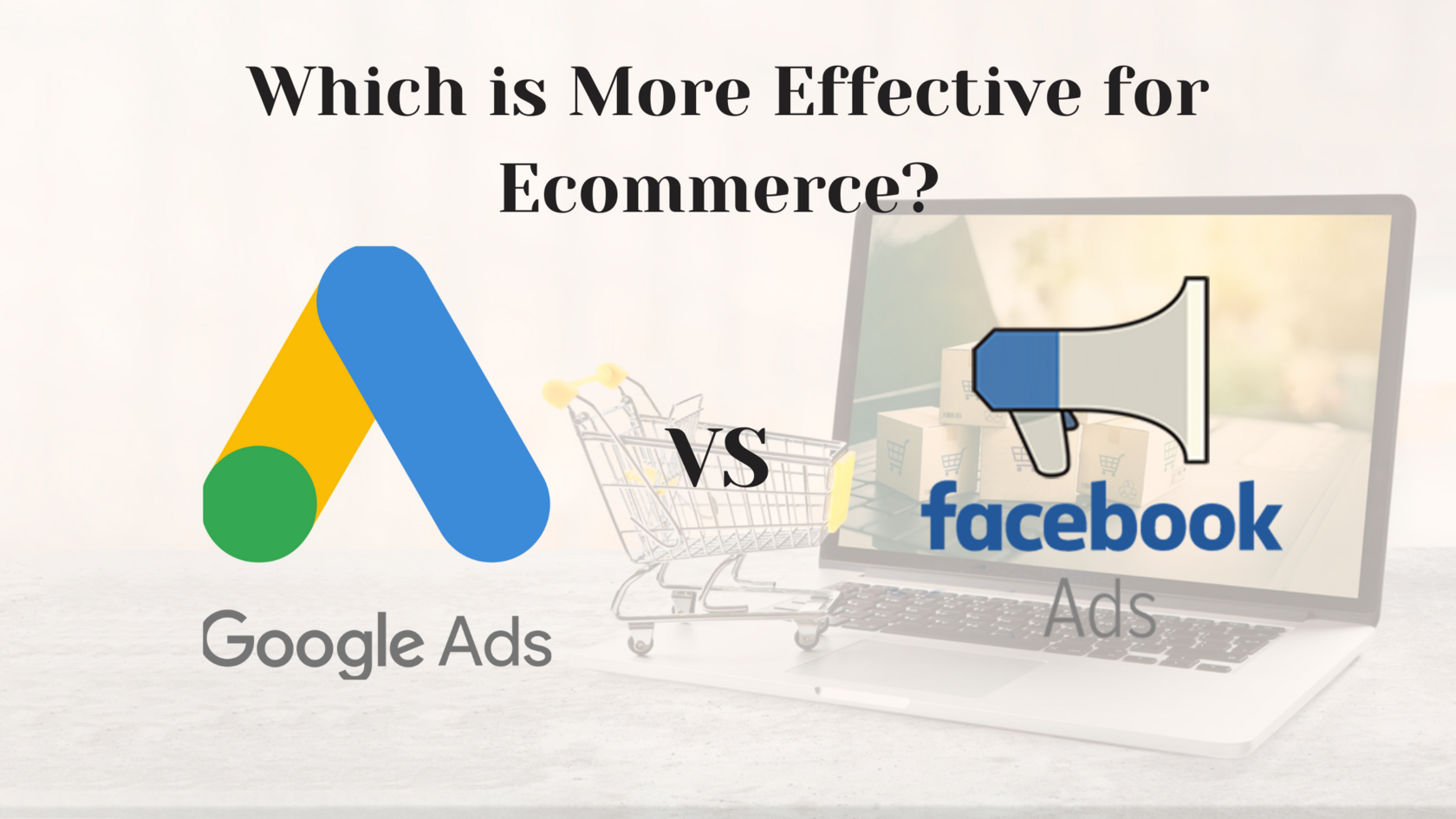In the fast-paced world of ecommerce, choosing the right advertising platform can make a significant difference in driving traffic, boosting sales, and achieving growth. Among the top contenders are Google Ads and Facebook Ads, each offering unique features, benefits, and challenges. In this article, we’ll break down the differences between these two platforms to help you determine which one is the best fit for your ecommerce business
Google Ads: High-Intent Traffic and Broad Reach
What Are Google Ads?
Google Ads (GAds) is a platform that enables businesses to advertise on Google’s search engine results pages (SERPs) and throughout the Google Display Network. Advertisers can target specific keywords, geographic areas, and other criteria, paying only when someone clicks on their ad (cost-per-click or CPC).
Pros of Google Ads
High-Intent Traffic: Google Ads targets users actively searching for products or services related to your online store, leading to higher conversion rates.
Better Conversion Tracking: Google Ads offers detailed conversion tracking features, enabling you to measure the ROI of your campaigns accurately.
Larger Audience: As the world’s largest search engine, Google provides access to a vast audience, increasing the potential reach of your ads.
Cons of Google Ads
High Competition: Depending on your niche, the competition for keywords can be fierce, driving up the cost-per-click.
High Cost: Google Ads can be more expensive than other platforms, especially when targeting high-volume keywords.
Steep Learning Curve: The platform’s complexity can be challenging for beginners, requiring time and effort to set up effective campaigns.
Facebook Ads: Precision Targeting and Engaging Formats
What Are Facebook Ads?
Facebook Ads is an advertising platform that enables businesses to place ads on Facebook, Instagram, and Messenger. Advertisers can target audiences based on demographics, interests, and behaviors, paying on a cost-per-impression (CPM) or cost-per-click (CPC) basis.
Pros of Facebook Ads
Targeting Capabilities: Facebook offers extensive targeting options, allowing you to reach highly specific audiences.
Lower Cost: Facebook Ads can be more affordable than Google Ads, particularly when targeting niche audiences.
Diverse Ad Formats: Facebook provides various ad formats, including image, video, and carousel ads, giving you creative flexibility to showcase your products.
Cons of Facebook Ads
Reduced Intent Traffic: Facebook users might not be actively searching for your products, leading to a lower level of user intent compared to Google Ads.
Limited Conversion Tracking: Facebook’s conversion tracking features are less detailed, making it more challenging to measure the ROI of your campaigns.
Ad Fatigue: Users may grow tired of seeing the same ads repeatedly, requiring fresh and engaging content to maintain their attention.
Which Is Better for Your Ecommerce Business?
Decision Factors
When deciding between Google Ads and Facebook Ads, consider the following factors:
Target Audience: If your target audience actively searches for your products, Google Ads may be more effective. If you’re aiming to reach a specific demographic or interest-based audience, Facebook Ads could be the better choice.
Advertising Budget: Facebook Ads are generally more affordable, making them suitable for businesses with smaller budgets. Google Ads may require a higher investment but can deliver higher-intent traffic.
Advertising Goals: If your goal is to capture users closer to the purchase stage, Google Ads is ideal. For creating brand awareness and generating demand, Facebook Ads are more suitable.
Combining Both Platforms
Many ecommerce businesses find success by leveraging both platforms. Use Facebook Ads to build brand awareness and create demand, then capture these users with Google Ads when they are ready to purchase. This integrated approach can maximize your advertising efforts and drive increased sales and revenue.
Conclusion
There is no one-size-fits-all answer to whether Google Ads or Facebook Ads is better for your ecommerce business. Each platform offers unique advantages and challenges. By understanding your target audience, budget, and advertising goals, you can make an informed decision. Consider testing both platforms to analyze their performance and determine the best strategy for your online store.
